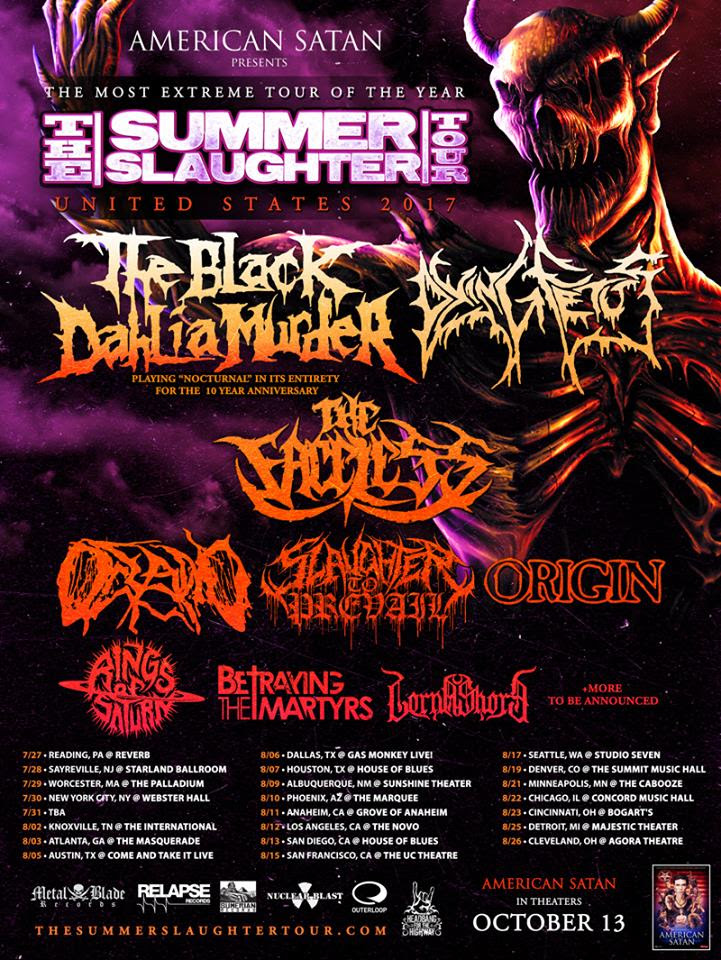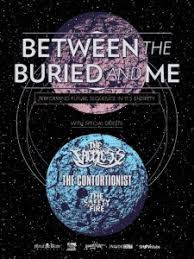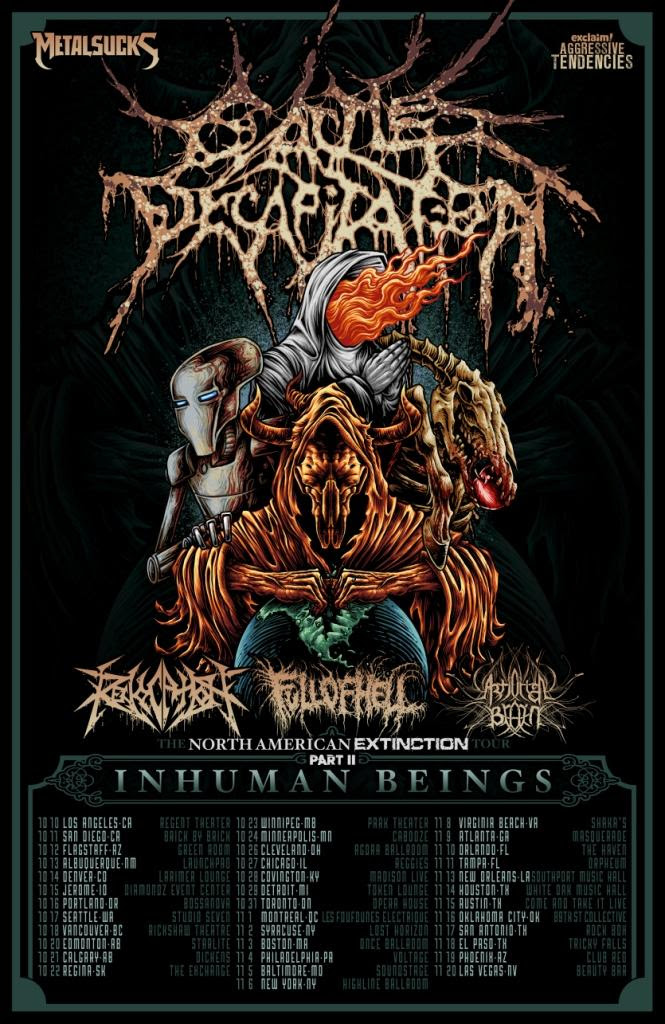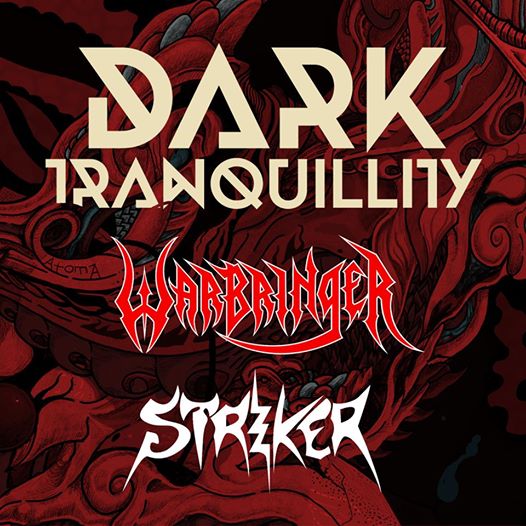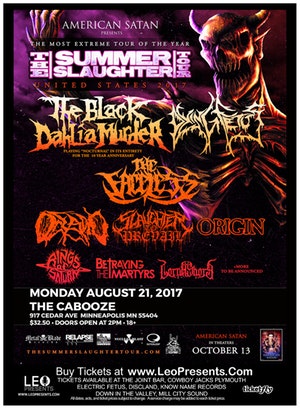Opiate For The Masses Interview
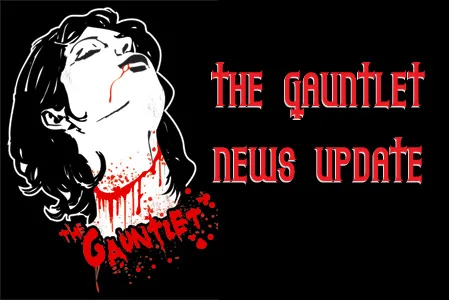 Opiate For The Masses have a knack for incorporating multi-faceted elements into a style that can be described as all their own. While at times, the band drift into commercial waters, their sound is enhanced with touches of metal and industrial. This fact gives the listener a unique experience on the group's latest, "The Spore." Seldom does one find an ensemble that is so appealing yet so innovative. For this interview, the entire band chipped in answers at random, showing that OFM can be considered a collective in the truest sense of the word. Read on and discover the story behind the band's enigmatic creativity for yourself.
Opiate For The Masses have a knack for incorporating multi-faceted elements into a style that can be described as all their own. While at times, the band drift into commercial waters, their sound is enhanced with touches of metal and industrial. This fact gives the listener a unique experience on the group's latest, "The Spore." Seldom does one find an ensemble that is so appealing yet so innovative. For this interview, the entire band chipped in answers at random, showing that OFM can be considered a collective in the truest sense of the word. Read on and discover the story behind the band's enigmatic creativity for yourself.The Gauntlet: When was it that you realized that the group had enough potential to go for making a career of performing?
OFM: Opiate For the Masses has been a band for more than 6 years. We have been pretty much full time since the beginning, although I guess we dropped out of college about 4 years ago to tour full time, so 4 years now- but from the first few shows, we could tell we had this rare energy together.
The Gauntlet: How did you go about choosing the bands name? Was it an easy decision?
OFM: We chose the name one night while having a discussion on our beliefs about organized religion and free thought. Once we said Karl Marx's quote, "organized religion is the opiate for the masses" out loud, it was very clear that our name was Opiate for the Masses.
The Gauntlet: How have the groups songs evolved from the days when you were just beginning to write songs?
OFM: Songwriting is an art that improves with practice. We have over 200 songs written and recorded for Opiate, and we feel they've evolved very much with the evolution of the people in the band. We are a very refined version of what we were when we started, and our songs are the same- we've learned to make each note more universally justified within the song. First you know what sounds cool to you. So then you have to learn why that sounds cool to you. Understanding those underlying patterns will always help with writing.
The Gauntlet: Does it take a certain period of time before your music becomes comfortable for you to play or is it a more natural process for the group, where you just bust the songs out and they materialize quickly?
OFM: We feel the emotion of the song that we are playing. Some songs are harder than others because of subject matter, but as long as we have an idea of how to approach it for the live setting, it's already done in our heads before we touch a string, mic, or drumstick. Some of our stuff almost seems funny for us to take credit for- like when it comes together so easily that it seems like it was already there. It's like, (we're not saying we're as cool), but for instance, Outcast's "Hey Yaa" seems like some secret ancient hit that those dudes happened to "write". So it's almost like an awesome cover song.
The Gauntlet: Please tell us a bit about the recording process for The Spore.
OFM: Recording "The Spore" was an awesome, amazing, and draining experience. We recorded the drums, bass, and guitars at El Dorado Studios (Burbank, CA), and then finished up at our guitarist and producer's house. We tracked and mixed "the Spore" using Digidesign hardware and software on Apple computers. Pretty much all of the people involved were friends of ours.
The Gauntlet: Did you encounter any unanticipated struggles along the way?
OFM: Making "the Spore" was the hardest and greatest thing Opiate has ever done. There were many hurdles that we had to cross during the process and many times we almost didn't make it. Not much sleep or food, lots of energy, emotion, and staring at computer screens. Jim had to chase a missing analog test reel through Manhattan that had been lost and run over by Fed Ex. The album was supposed to be mastered at Sony in New York that day. There's really no way anybody could recover something like that, but Jim chased Fed Ex trucks for hours and somehow found it in a pile of broken stuff.
The Gauntlet: The band incorporates elements of many different styles of music in its songwriting. From industrial to modern rock, OFM seems to mix these contrasting themes very well. Where does your inspiration for such varying sounds stem from?
OFM: All of the band members listened to different kinds of music growing up. We all get to play what we want, artistically fulfilling all of our needs. The blend of genres that is heard in our sound is the sound of the four of us playing together, so it's quite natural.
The Gauntlet: Can you speak for a bit in regard to the musical experience that each band member brings to the table?
OFM: Each member's contribution is so mixed that it's hard to isolate and tag each guy's contribution. If we were to make several overgeneralizations, Seven brings the Metal, Jim brings the ecstasy-tinged Dance and Industrial, Head brings the Punk/Indie juice, and Ron brings the Motown/New Wave. It's clear to us that we all have guilty pleasures in every genre of music, so the four of us really only bring it up to each other when one of us becomes the poster child of one type of music.
The Gauntlet: Did you use any recording techniques while making the new record that could be considered to be particularly innovative?
OFM: Yes, but if we told you, we'd have to kill you.
The Gauntlet: Describe for us the feeling that you had when the record was finally complete
OFM: Bliss, I guess would be the best way to describe it. However there was a bit of post-partum depression that sank in a few weeks after mastering. We had a hard time birthing it, and a hard time healing the wound that was left after. It's always surreal to finish a project like that. For a lot of people with a debut album on the shelves, the cockiness is outweighed by self-doubt, or vice-versa. We like to hang out in the middle and say "yeah we're lucky to be here, and we faithfully sold our souls along the way, so things will pan out either way."
The Gauntlet: What are your touring plans for the remainder of 2005?
OFM: We have been asked to open for our great friends, Avenged Sevenfold. We should be out with them soon after Warped Tour. We will be on the road for the rest of the year with a bunch of great bands. Keep up on our website for the latest.
The Gauntlet: Is OFM a group that is in a constant state of creativity or do you tend to go through different phases, separating writing from recording and touring?
OFM: We write at all times. Writing is the only way for us to express our emotions in a healthy way. We have a studio in our bus that we write in every day.
The Gauntlet: Explain the process that goes into writing the typical OFM song.
OFM: We write mostly using our computers. Every song is unique, so depending on the particular piece; we will do whatever is needed. Some start on an acoustic guitar, some start just as a beat loop, and some start on a PRS guitar cranked through a Marshall, but the final personality has a lot to do with the recording production of a song. So with that in mind, although a great song should translate across different instruments and versions, we like to explore odd instrumental setups and techniques from the beginning steps because it can direct you to all sorts of new territory.
The Gauntlet: The record has a certain appeal that lends itself toward commerciality, yet the band remains artistically innovative. How do you achieve this balance?
OFM: Being true to yourself is the key. Just continue making music you not only want to play, but want to hear. It has taken us a long time to achieve that. Sometimes the fun for us is in using a three-chord, very commercial idea and turning it into a vehicle to administer crack pipes to dolphins for Satan. We've been highly successful at this.
The Gauntlet: What are your thoughts on music in 2005? What groups do you see as being most relevant? Where do you believe the industry is headed?
OFM: It's hard to stay informed and connected when you are constantly on the road, but the new music that we find respectable is any that has done its homework. If your influences are too close together for too many generations, your music will be inbred and have too many recessive traits. These traits will not withstand the elements for long, and they will be absorbed by stronger musical traits that trickle down from more diversified sources. The music industry discovers the stronger traits and makes models of them. As other artists catch on to that notion, the industry capitalizes on those derivative artists, so inbreeding is rewarded for another short time. But it can't last long. That's the rise and fall of a scene. So the industry is headed to the bank. The irony is that it is still more reliant on the artist than the artist is on it. If the industry made no cash, there would be no industry. But if the artist made no cash, he would just move back in to his ex's place for a couple weeks.
Read More News
Tags: Opiate For The Masses, OFTM , Opiate For The Masses, interviews
EF August 09, 2005


